
Ocean and Coastal Research
Scope & Guideline
Unlocking the secrets of marine ecosystems.
Introduction
Aims and Scopes
- Marine Ecology and Biodiversity:
Research on species diversity, community structures, and ecological interactions within marine ecosystems, including assessments of both endemic and invasive species. - Coastal and Marine Management:
Studies focusing on the governance, management, and conservation of marine resources, including participatory approaches to enhance socio-ecological resilience. - Physical and Chemical Oceanography:
Investigations into oceanographic processes, including hydrodynamics, sediment transport, and biogeochemical cycles affecting coastal and marine environments. - Impact of Climate Change:
Research examining the effects of climate change on marine and coastal ecosystems, including studies on extreme weather events, ocean acidification, and temperature variations. - Human-Induced Changes:
Analysis of anthropogenic impacts such as pollution, habitat alteration, and resource extraction, and their implications for marine biodiversity and ecosystem health. - Technological Innovations:
Application of new technologies in marine research, including remote sensing, underwater imaging, and machine learning for environmental assessments.
Trending and Emerging
- Climate Change Adaptation Strategies:
An increasing number of studies focus on adaptive strategies for marine and coastal ecosystems in response to climate change, emphasizing resilience and sustainability. - Marine Pollution and Plastic Debris:
Research addressing the impacts of marine pollution, particularly plastic waste and microplastics, has surged, reflecting growing global concern over ocean health. - Biodiversity and Conservation Initiatives:
There is a strong trend towards research supporting biodiversity conservation efforts, with studies investigating the effectiveness of Marine Protected Areas (MPAs) and other conservation strategies. - Community Engagement in Marine Governance:
Emerging themes include participatory governance approaches involving local communities in marine management, showcasing the importance of stakeholder engagement. - Technological Advances in Marine Research:
The use of advanced technologies, such as drones and remote sensing, for monitoring and assessing marine environments is on the rise, indicating a shift towards innovative methodologies.
Declining or Waning
- Traditional Fisheries Studies:
Research focused solely on traditional fishing practices and stock assessments has decreased, possibly due to a broader emphasis on integrated ecosystem approaches and sustainability. - Historical Marine Studies:
Papers focusing on historical analyses of marine species and ecosystems have become less common as the field shifts towards contemporary issues and immediate environmental challenges. - Invasive Species Documentation:
While still relevant, the frequency of studies solely documenting invasive species has waned in favor of research that combines impacts, management strategies, and ecological interactions. - Single-Species Management Strategies:
There is a noticeable decline in research advocating for single-species management, as the focus shifts towards ecosystem-based management and holistic approaches. - Basic Taxonomic Studies:
The emphasis on basic taxonomy without ecological context appears to be declining, as researchers increasingly integrate taxonomy with ecological and environmental studies.
Similar Journals
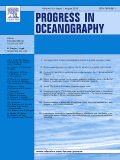
PROGRESS IN OCEANOGRAPHY
Elevating Oceanographic Research to New HeightsPROGRESS IN OCEANOGRAPHY is a pivotal journal published by PERGAMON-ELSEVIER SCIENCE LTD, dedicated to advancing the field of oceanographic research and exploration. With an ISSN of 0079-6611 and an E-ISSN of 1873-4472, this esteemed publication has been disseminating significant findings from 1963 and continues to be a cornerstone in aquatic sciences and geology, holding a distinguished Q1 ranking in both categories as of 2023. The journal primarily focuses on innovative research that contributes to our understanding of ocean processes, marine ecosystems, and the impact of human activities on the oceans. Its exclusive access model facilitates the dissemination of high-quality content that resonates with researchers, professionals, and students alike, ensuring that vital insights are accessible to the global scientific community. With a firm commitment to upholding rigorous scientific standards, PROGRESS IN OCEANOGRAPHY remains an influential platform for the communication of groundbreaking research, providing scholars with invaluable resources to drive future oceanographic studies.
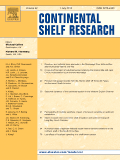
CONTINENTAL SHELF RESEARCH
Connecting Geology and Aquatic Science for a Sustainable FutureCONTINENTAL SHELF RESEARCH, published by PERGAMON-ELSEVIER SCIENCE LTD, is an esteemed journal within the fields of Aquatic Science, Geology, and Oceanography, reflecting a compelling intersection of these disciplines. Since its inception in 1982, this journal has served as a premier platform for disseminating cutting-edge research relevant to the continental shelf ecosystem, including its geological features, biological resources, and physical processes. With a Category Quartile ranking of Q1 in Aquatic Science and prominent Q2 standings in Geology and Oceanography, it is recognized for its rigorous peer-review standards and impactful contributions, evidenced by its respective rankings in Scopus. Researchers and professionals are encouraged to engage with the journal's array of high-quality articles that not only enhance scientific understanding but also inform policy and conservation efforts. This dedication to advancing knowledge makes CONTINENTAL SHELF RESEARCH an essential resource for those passionate about marine and coastal studies in the United Kingdom and globally.
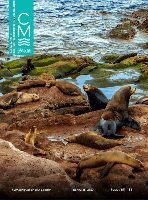
CIENCIAS MARINAS
Championing Biodiversity in Aquatic EnvironmentsCIENCIAS MARINAS, an influential journal in the field of Aquatic Sciences, is published by the Instituto de Investigaciones Oceanológicas of the Universidad Autónoma de Baja California. Established as an open access platform since 2006, it aims to disseminate original research and critical reviews that contribute to the advancement of marine science. With a commitment to fostering scholarly dialogue, CIENCIAS MARINAS serves as a vital resource for academics, researchers, and practitioners interested in the ecological dynamics and biological processes of aquatic environments. Although currently ranked in the fourth quartile in Aquatic Science by Scopus, the journal remains dedicated to increasing its visibility and impact within the research community. Housed in Mexico, it offers a regional perspective that underscores the importance of coastal and oceanic research, making it an essential avenue for exploring marine biodiversity and conservation efforts. By engaging with this journal, readers can stay abreast of the latest developments and contribute to the growing body of knowledge in marine sciences.

International Journal of Marine and Coastal Law
Advancing Legal Frameworks for Marine Conservation and ManagementThe International Journal of Marine and Coastal Law, published by Martinus Nijhoff Publishers, is a leading academic periodical dedicated to the exploration of legal aspects related to marine and coastal environments. With a strong emphasis on interdisciplinary research, this journal serves as a vital resource for scholars, practitioners, and policymakers engaged in areas such as environmental science, oceanography, and law. Since its inception in 1986, the journal has continuously evolved to address contemporary challenges in the field, boasting a commendable Q2 ranking in Law and Q3 rankings across various relevant categories. The journal facilitates rigorous discourse on pressing issues, providing a platform for high-quality research that aims to inform legal frameworks and enhance sustainable practices. Although it does not offer open access, the journal’s impact extends to its notable Scopus rankings and its essential role in shaping legal discourse on marine and coastal management. Researchers and professionals will find invaluable insights and scholarly contributions that are crucial for advancing knowledge and policy in this critical area of study.
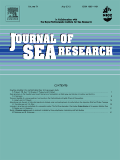
JOURNAL OF SEA RESEARCH
Empowering Researchers to Shape Marine UnderstandingJOURNAL OF SEA RESEARCH, published by Elsevier, is a premier academic journal dedicated to advancing knowledge in the fields of aquatic science, ecology, and oceanography. Since its inception in 1996, this journal has provided a vital platform for researchers and professionals to disseminate groundbreaking findings and promote fostering interdisciplinary discussions. With its impressive Q2 ranking in multiple categories, including Aquatic Science and Ecology, Evolution, Behavior and Systematics, it positions itself as a significant contributor to marine and environmental studies. The journal is accessible in both print (ISSN: 1385-1101) and online formats (E-ISSN: 1873-1414), ensuring wide reach and engagement within the scholarly community. Researchers and students alike will find the journal not only a reliable source of information but also a source of inspiration for future explorations. With a commitment to quality and a broad scope that spans fundamental to applied research, JOURNAL OF SEA RESEARCH remains an indispensable resource for understanding the complexities of marine environments and their relevance to our changing world.

JOURNAL OF WATERWAY PORT COASTAL AND OCEAN ENGINEERING
Charting New Waters in Engineering ExcellenceThe JOURNAL OF WATERWAY PORT COASTAL AND OCEAN ENGINEERING, published by the ASCE - American Society of Civil Engineers, is a premier scholarly journal devoted to the interdisciplinary fields of waterway, port, coastal, and ocean engineering. Since its inception in 1982, the journal has provided a crucial platform for researchers, professionals, and students to share innovative findings and advancements related to the engineering and management of aquatic environments. With an impressive Q2 ranking in multiple categories, including Civil and Structural Engineering, Ocean Engineering, and Water Science and Technology, the journal is recognized for its significant contributions to the field. It seeks to publish high-quality research that addresses both theoretical and practical challenges while promoting sustainable practices in marine and coastal systems. Holding a prominent Scopus rank and providing access to a global readership, the journal stands as an invaluable resource for those dedicated to advancing the science and engineering of water environments.
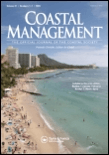
COASTAL MANAGEMENT
Exploring the intersection of science and coastal stewardship.COASTAL MANAGEMENT is a distinguished journal published by Taylor & Francis Inc, specializing in the interdisciplinary field of environmental science with a focus on coastal ecosystems. Since its inception in 1987, this journal has provided a critical platform for researchers and practitioners to disseminate innovative studies and practical solutions related to coastal management challenges. With an impressive Q2 ranking in both Environmental Chemistry and Environmental Science categories, it is recognized for its significant contributions to the field, evidenced by its Scopus ranking of #61/233 in General Environmental Science and #60/147 in Environmental Chemistry. Although open access options are not available, the journal maintains a broad readership within the academic community through its comprehensive exploration of coastal issues. With a commitment to advancing knowledge and fostering collaboration among experts, COASTAL MANAGEMENT plays a pivotal role in shaping sustainable practices and policies essential for the conservation and stewardship of our vital coastal environments.

JOURNAL OF COASTAL CONSERVATION
Pioneering research for the preservation of coastal landscapes.JOURNAL OF COASTAL CONSERVATION, published by SPRINGER, is a premier academic journal dedicated to the study and promotion of coastal ecosystem management and conservation strategies. With a rich publication history beginning in 1995 and spanning over multiple converged years, this journal serves as a vital platform for researchers and professionals in the fields of Ecology, Nature and Landscape Conservation, and Oceanography. Recognized for its impactful contributions, it holds a Q2 ranking in multiple categories for 2023, including Ecology and Oceanography, underscoring its significance in advancing knowledge and practice in coastal conservation. With a commitment to delivering high-quality, peer-reviewed articles, the journal facilitates discourse on critical issues affecting coastal environments, making it an essential resource for scholars and practitioners looking to enhance the sustainability and resilience of coastal habitats. The journal provides broad access to vital research findings, ensuring that both the academic community and policy-makers have the information necessary to address the pressing challenges facing coastal regions worldwide.
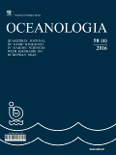
OCEANOLOGIA
Transforming Ocean Knowledge into ActionOCEANOLOGIA, a distinguished academic journal published by the Polish Academy of Sciences, Institute of Oceanology, serves as a pivotal platform for researchers and professionals in the fields of Aquatic Science, Oceanography, and Ocean Engineering. Established in 1973 and transitioning to Open Access in 2011, this peer-reviewed journal promotes the dissemination of high-quality research across its diverse scope of ocean-related topics, aligning with its commitment to advancing marine science. With a notable impact factor underscored by its positioning in the Q1 and Q2 quartiles of recognized categories, OCEANOLOGIA stands out with impressive Scopus Rankings, including 49/247 in Aquatic Science and 24/105 in Ocean Engineering, reflecting its significance in the global research landscape. The journal's dedication to publishing cutting-edge studies ensures that it continues to influence both academic discourse and practical applications in ocean-related fields, making it an essential resource for students, researchers, and professionals aiming to contribute to the advancement of oceanic studies.
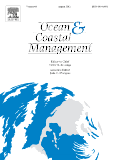
OCEAN & COASTAL MANAGEMENT
Exploring the Depths of Aquatic ScienceOCEAN & COASTAL MANAGEMENT is a premier journal dedicated to the multifaceted fields of oceanography, aquatic science, and coastal management. Published by ELSEVIER SCI LTD and located in the United Kingdom, this esteemed journal boasts a remarkable Q1 ranking in prestigious categories, including Aquatic Science and Oceanography, reflecting its influential contributions to the field since its inception in 1992. The journal is recognized for its high impact, boasting a commendable presence in Scopus rankings across related disciplines, with notable placements in the 94th percentile for Aquatic Science and 92nd percentile for Oceanography. Although it operates under a subscription model, OCEAN & COASTAL MANAGEMENT continues to serve as a vital resource for researchers, professionals, and students seeking to advance their understanding of coastal ecosystems and effective management strategies. Through rigorous peer-reviewed research, the journal aims to foster knowledge exchange and practical applications in policy-making and environmental stewardship, making it an essential read for anyone engaged in the preservation and sustainable use of oceanic resources.